Sunday Story: "Concours D'Angst" by Jack Baruth

Only about one-tenth of one percent of the attendees at the Spring 2134 Concours d’Reconstruction were there in the meat sense. The rest were immersed in commercial newsfeeds or represented by personal sense-drones. Still, it was no small feat in the arcology era to find a place where you could put a hundred nearly perfect reproductions of Oil Age automobiles, ten thousand spectators, and hundreds of thousands of floating machines. So they held it in the old Cobo Arena, partially for nostalgia but mainly because it was a big empty space that somehow hadn’t been burned to the ground during the food riots or the privilege riots or the nanodisease riots.
To be eligible to show in the event, you needed to be one of the hundred most-Liked constructors, as measured, by common agreement, at midnight on 1 August of the previous year. You also needed to be willing to construct a car from scratch using nanoassemblers and various small-batch production techniques. Only newly constructed automobiles of a year and model not shown in previous events were welcome. It was unheard-of for a constructor to refuse the invite.
Cobo was an hour by train away from civilization, but as one of the chosen one hundred, Zack-55002 was of course present in the meat, standing next to the car he’d built for the concours, a 98.20% correct reiteration of the 1925 Don Harkness Hispano-Suiza. As was his mortal enemy, Alphonse-45009, who had brought a 99.65% correct reiteration of Juan Pablo Montoya’s 2001 Monza-winning FW23. When the winners were announced, Zack found himself standing on the second step of the podium, accepting an aluminum oxynitride trophy that contained a piece of the moon Europa, frozen and suspended within the cup by some rather admirable tech. Alphonse ascended to the place above him and graciously hoisted a slightly larger variant of Zack’s trophy. This made it four wins for Alphonse and two for Zack over the past six years. Nobody even came close to the two of them, but Alphonse was just that little bit better and Zack hated him for it.
Then, before either could speak, Edith-65002 burst from the crowd, ran up to the podium, stripped naked, faced the hovering mass of the drones and the packed throng of the people, and raised her hands for silence.
Edith was herself a respected constructor, having submitted a well-received series of Bertone “BAT” cars over the past few years, but she was better-known for her personal eccentricities. In a world where pre-birth genetic manipulation and painless cosmetic surgery made most people anonymously handsome and nearly interchangeable, she had chosen to allow her original genes to express themselves sans redaction. It made her taller, heavier, darker-skinned than most. Her face was not perfectly symmetrical. Nor did she participate in the virtual sex play that had occupied much of the time of Zack and his creche-mates since they turned nine or so. She refused to disclose the location of her home or the identity of her genetic parents. When you pinged her in normal or meat space you didn’t get a summary or a download or an expert system interaction — you got her name and six neon letters hovering in your headsup. GO AWAY. She was antisocial, mentally ill, and precisely the type of human being who was supposed to have disappeared fifty years ago.
Zack found it difficult to think of her without suffering physical arousal.
And now she was nude in front of him and a few million others, demanding everyone’s attention. “People, drones, idiots!” she screamed. “How many of you are sick of seeing these two characterless model-makers win every year?” There was a susurrus of approval that grew to a roar before she waved her arms for silence. “How many of you would like to see someone else win?” This time the roar was immediate. A change in one of the many tones that played continuously in Zack’s ear, almost below the level of his conscious attention, confirmed what he’d feared would happen: people were draining his Likes, and Alphonse’s, and giving them to Edith. He was slipping quickly below the baseline Likes he’d established when he’d walked in the arena this morning. “Well,” Edith screamed, “I’m not just going to complain about it. I’m going to do something!”
There was silence as everybody in the arena assumed the reflexive crouch position that was thought to best protect the brain stem against bomb fragments.
“No, you morons!” Edith yelled again. “I’m going to vote for change with — my body.”
Not everyone got up out of the crouch.
“Can anyone here say that they have had me, that they have coupled with me, in normal space or meatspace?” There was silence. “Well, a year from now that will change. Because I will couple, in meat, with the winner. And he, or she, will be my only partner. Forever.” The silence was nearly absolute, except for the low whir of misadjusted drones. “Thank you,” Edith stated, in a normal tone of voice, “and goodbye.” She walked out of Cobo, still nude, and not a man nor machine stirred.
Then, pandemonium, even louder than the sound of the disassemblers descending from the ceiling to melt the cars back into base nanostock.
* * *
Zack spent the month after the Concours in frantic but unproductive activity. He knew from experience that he could sketch and construct pretty much any Oil Age automobile in six months or less, as long as he could find templates for most of the parts in the existing libraries. In cases where the entire source vehicle had been material-scanned, as with most historically important vehicles, he could come up with important variants in just a month. Like most constructors, his early cars had been simple riffs on reiterations perfected by others. He’d gotten some attention when he figured out a way to reproduce the pastel colors of the nineteen-Fifties in ways that looked good even to modern humans and their augmented-spectrum vision. His application of that idea, a pink ’57 Bel-Air, was hailed as a triumph in the Fall 2123 minor concours.
After that, he’d started to dig deeper into the past, force-learning for days at a time about machining and forging and casting techniques, the exact purities of contemporaneous metals, the vagaries of Bakelite, and so on, tuning the assemblers in his apartment to create squares that he would show off to his creche-mates. “What’s that?” they would ask. “It looks boring.”
“Oh, nothing,” he’d demur, before saying excitedly, “It’s only a one-kilogram block of cast aluminum that perfectly duplicates the impurities found in the SOHC 427FE.” It wasn’t too long before his Likes were almost gone and his entries into normalspace meetings were politely refused by automated systems.
But in the place of his old childhood friends came the constructors and the fans, who never tired of discussing what real asbestos must feel like to the touch or the proper way to simulate the exhaust heat stress of a multiple Can-Am races on a fiberglass rear wing. Their Likes for his early work allowed him to apply for extra time and materials in the assemblers. When he reached the point that he had the ability to whip up one car a month instead of one every two years, he started thinking about the Spring concours in earnest. His Spring 2127 entry, a pre-A Porsche 356 coupe, was ranked Top 50. His Spring 2128 entry, a Rolls-Royce Springfield Ghost, took second place. He had arrived.
But Alphonse was already there, waiting for him. Alone among the top constructors, Alphonse paid Zack no respect. “Zack is,” Alphonse wrote in a public blogpost, “derivative, unspectacular, and deadly dull; an artist whose minor excellence is limited to things like plain-bearing surfaces and pastel paint. He could easily be replaced by an expert system, assuming that expert system could have every single semblance of taste and breeding forcibly excised by a recursive loop.” When Zack posted an angry response the next day, indicating that he was too busy working on reiterating the early-twenty-first-century Mercedes MCT transmission from a damaged set of PDF engineering diagrams, Alphonse’s next action was to have a perfect 7G-Tronic MCT delivered to Zach’s pod three days later. Two days later, another one arrived, this one with a transparent case and with a note, inlaid into the top of the case with thousands of tiny sapphires: In case you’re too stupid to figure out how to take the first one apart and see how it works. Alphonse.
The years that followed were blurs, as Zack availed himself of every possible implant and drug and enhancement to better his talent, to work more, to produce more exact iterations of cars that had not existed in the metal for a hundred years or longer. Around him, the fourteen billion people of the Earth ate and slept and virtch-fucked and rarely died except by their own hands, but Zack focused on the cars. The result so far: Zack two, Alphonse four.
And now this declaration by the mysterious Edith. It would bring the crazies out, the people who had saved years of welfare nano allocation to try a single shot at construction, the retired constructors eager to force Edith to accept their deranged old minds in their perfect telomere-chain-restored bodies, the artificial intelligences in their titanium spheres out past the asteroid belt, operating over a thirty-minute communication delay through smooth-skinned humanoid drone-reps. But Zack knew that in the end it would be him or Alphonse in some coupling chamber with her. He thought about her words. My only partner. Forever. In a frenzy of erotic anger, he wasted nano on having a precise humanoid copy of Edith delivered to his room that night. He was red-skinned with rage and desire when he activated her, but under the humanoid’s judgmental glare, so typical of Edith, his resolve flagged. With a wave of Zack’s hand, a machine descended from the ceiling and burned the silent Edith to nothing, sucking up the recyclables as it worked, as Zack cradled his head in his hands and sobbed.
* * *
By common agreement, the Spring 2135 Concours d’Reconstruction was held in the vast, cathedral-like interior of a hollowed-out mountain, in what had once been Colorado. It was estimated that over six hundred million people were watching the event around and outside the planet. The media had spent the past year trying to interview and deconstruct everyone involved, but although Zach and Alphonse had been more than willing to participate in the publicity Edith herself had proven impossible to locate. It had only fanned the flames, the interest in this mysterious woman who didn’t engage in virtual sex three times a day like nearly everyone else, who looked and acted excitingly different from everyone else. Well over ten million women had altered themselves to look like Edith in the past year, making her imperfection yet another sort of mass-manufactured perfection.
Yet when Edith walked into the hall, a two-tone 1988 Bertone X1/9 trailing her on its floating transporter, there was no doubt in Zack’s mind that it was really her and not one of the ten million imitators. It was typical of Edith that she didn’t mask her car in a nanocloud until it was her time to be judged. What you saw was what you got, with her. She failed to acknowledge Zack and his clouded entry as she went by, but Zack smirked at her anyway.
You’ll be mine tonight, was his sole thought, racing circular in his head and burning out everything else. For Zack had finally found the direction of his true genius. After nearly ninety days of marinating his augmented brain in a devious cocktail of hormones, he’d come up with the perfect idea. Strictly speaking, it wasn’t in keeping with the spirit of the concours, which was to honor the era of individual motoring by making it possible to once again see automobiles as they had been. But the showmanship of it would be beyond question and the judges would have no choice but to give him the prize — and, by extension, Edith.
Fifty unendurable minutes later, the judges arrived at his station. Nine anonymously handsome old people, some of whom could legitimately claim to have been alive when there was still petroleum being extracted from the Earth, and the floating mirrorball that represented the distributed artificial intelligence Vix 9. Zack smiled and did not immediately uncloak the car behind him, choosing instead to indulge in a brief speech.
“Sentient judges, I greet you, and I ask you to return with me to the thirtieth day of September, nineteen fifty-five. A young man had owned his Porsche 550 Spyder for ten days. He would not own it for an eleventh.” He waved at the cloud behind him, which dispersed to show a twisted ball of wreckage.
There was a gasp from the audience. Wrecked cars had been done before, but they represented a subspecies of the hobby, not Concours-level. Zack let the tension build, then continued.
“Judges, this was how the 550 Spyder of James Dean ended its existence. But let me show you how it began.” Another wave of his hand, and the crumpled wreckage began to unfold as electromagnets in Zack’s floating car hauler targeted specific iron-impregnated areas of the crumpled Porsche. It un-crumpled with a series of hollow screeching noises, stretching and filling out the envelope of space occupied by its original shape. Now the crowd was starting to roar with approval.
“We, sentient judges, are here to re-create the past. But every particle we manipulate was once part of something else. I calculate that five of the atoms in this reconstruction were present in the original James Dean car. But today—” and now the metal surfaces behind him were smoothing out while tiny fly-like machines touched-up and buffed the silver paint to a dull sheen, “—today we can imagine what happened to the rest of those trillion atoms.” With a loud POP the last dent disappeared from the bodywork.
Now the crowd was roaring and people were rushing around Zach, lifting him onto their shoulders, and he was waving to the crowd, and he saw Edith in the distance, and he waved at her, but she was staring at Alphonse. With a snap of his fingers, Alphonse smirked at Zack and de-cloaked his creation. The silence rushed towards Zack, and Alphonse was at the center of it, like fast ripples from a stone in a pond.
The crowd melted away from Zack as he was unceremoniously dropped to the ground. In seconds, it was impossible to see Alphonse or his creation. Zack pushed and fought through the drones and the people to find his enemy standing in the center of them, his arms folded, a smile on his lips.
Next to Alphonse was a 1980 Citation notchback coupe. Zack recognized it instantly from pictures, but he knew that not a single X-car had survived the riots and the burnings. Which meant that Alphonse had built it from scratch. Zack’s stomach dropped as he realized the magnitude of what his enemy had done. While he, Zack, had been working out the magnetic trickery of the Spyder’s instant reconstruction, Alphonse must have studied hundreds, thousands, of photographs, almost all of them incomplete, creating the unloved Citation from the tires to the ceiling himself. Not even the Iron Duke engine had ever been iterated before. Nobody had cared enough to do it.
Tears filled Zack’s eyes as he pushed by Alphonse to touch the Citation. The badges were crookedly applied, mispainted, cheap-looking, absolutely and brilliantly correct. The cloth had wear spots where showroom visitors might have rubbed their denim pants against it. The left rear taillight had exactly two millimeters of water floating in it. Zack could hear the voices around him: Brilliant. Unexpected. A new height in accuracy. And then he saw Edith standing next to Alphonse, and the two of them were united in their parental pity for him and his childlike trick, and he ran back to the Spyder, vaulted into its fresh-smelling leather chair. His defeat, his humiliation, was utter and complete. He had a physical urge in him to drive the little Porsche off its platform, through the crowd, scattering blood and fluid in his wake, and to disappear in the mountain. His hands touched the controls, shaking, seizing, but he did not know how to drive.

More by Jack Baruth
Latest Car Reviews
Read moreLatest Product Reviews
Read moreRecent Comments
- Theflyersfan The wheel and tire combo is tragic and the "M Stripe" has to go, but overall, this one is a keeper. Provided the mileage isn't 300,000 and the service records don't read like a horror novel, this could be one of the last (almost) unmodified E34s out there that isn't rotting in a barn. I can see this ad being taken down quickly due to someone taking the chance. Recently had some good finds here. Which means Monday, we'll see a 1999 Honda Civic with falling off body mods from Pep Boys, a rusted fart can, Honda Rot with bad paint, 400,000 miles, and a biohazard interior, all for the unrealistic price of $10,000.
- Theflyersfan Expect a press report about an expansion of VW's Mexican plant any day now. I'm all for worker's rights to get the best (and fair) wages and benefits possible, but didn't VW, and for that matter many of the Asian and European carmaker plants in the south, already have as good of, if not better wages already? This can drive a wedge in those plants and this might be a case of be careful what you wish for.
- Jkross22 When I think about products that I buy that are of the highest quality or are of great value, I have no idea if they are made as a whole or in parts by unionized employees. As a customer, that's really all I care about. When I think about services I receive from unionized and non-unionized employees, it varies from C- to F levels of service. Will unionizing make the cars better or worse?
- Namesakeone I think it's the age old conundrum: Every company (or industry) wants every other one to pay its workers well; well-paid workers make great customers. But nobody wants to pay their own workers well; that would eat into profits. So instead of what Henry Ford (the first) did over a century ago, we will have a lot of companies copying Nike in the 1980s: third-world employees (with a few highly-paid celebrity athlete endorsers) selling overpriced products to upper-middle-class Americans (with a few urban street youths willing to literally kill for that product), until there are no more upper-middle-class Americans left.
- ToolGuy I was challenged by Tim's incisive opinion, but thankfully Jeff's multiple vanilla truisms have set me straight. Or something. 😉



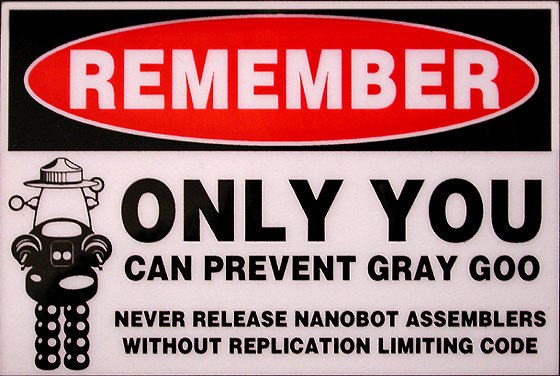












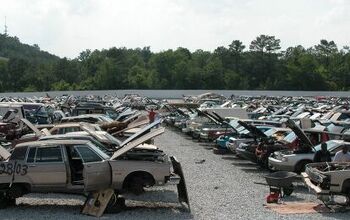

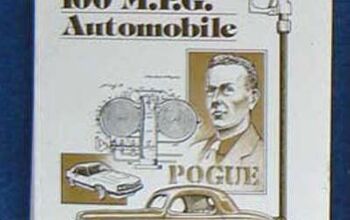
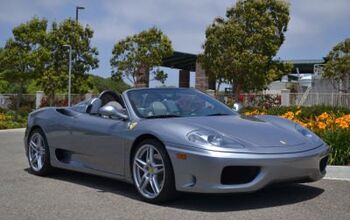
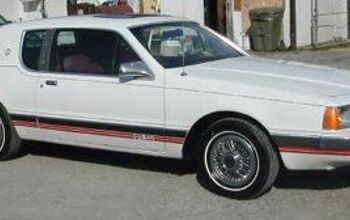






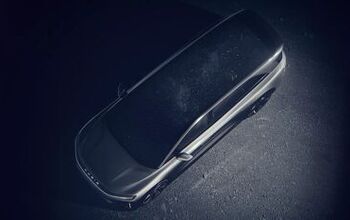






Comments
Join the conversation
Well done Jack ! . -Nate
Wow - you can just drop the mic after that one. It's in the Neal Stephenson class, with dog whistles to us car geeks on top.